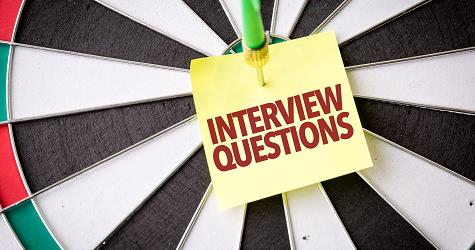
Every candidate has the “God, I hope they don’t ask me that question” question. And a recruiter can tell when they have asked that question. They see that a candidate has become uncomfortable. The signs vary. But the signals can look like any one or combination of the following:
— an uncomfortable shift in your seat, only to still not be comfortable
— an upward look up to search for a believable answer
— a deep breath, subliminally confirming to yourself “alrighty… here it is and here we go…”
— a series of “Ummms” peppered through your answer
Any of these sound familiar? Has it happened to you? I get it. But I’m telling you hoping the interviewer doesn’t ask that question you hope they don’t ask isn’t a strategy. What’s that phrase? “Hope isn’t a strategy.” Nope. I say whatever question you hope they don’t ask, that’s the question to be the most ready for.
Throughout my years of coaching, here are a list of what clients have told me are some of the questions they hope interviewers don’t ask, but often do. So let’s start there:
(1) Tell me about your last boss? Easy enough! But what if your boss was a condescending blowhard? You swear no matter how you answer they will see right past you. But by being ready and prepared for this question, you can answer it without speaking negatively, which is always a bad idea.
(2) Why did you leave your last job? What do you say if you were fired, laid off before others, let go when the new CEO brought in her people, your department was eliminated, or any other reason that can make people doubt if you are the quality hire you say you are. Be prepared to highlight what happened and put a professional spin on it so they can see you are still a great candidate despite the circumstances.
(3) Tell me about yourself. It doesn’t matter how far up the ladder you’ve climbed, everyone hates this question. But the way you react to it and the answer you give can be extremely telling of your ability for an executive role. Preparation in advance can definitely help you avoid all those potential land mines and bring your A game to the interview. Shine a positive light on your assets, especially those that are directly related to the position you are seeking.
(4) Why do you want this job? How do you answer when the real reason is you just can’t go to your job one more day to deal with mind numbing colleagues and a boss who seems like he peaked in high school? Focus on the highlights you know the job offers and why you are a good candidate for it and relay those when asked.
(5) Where do you see yourself in 5 years? Personally, I think this is the dumbest, most least effective interview question ever. But guess what – inexperienced and lazy interviewers still ask it. So you have to be ready for it. And again, planning ahead gives you that confidence they need to see. Be sure to keep the positives in mind that can still relate to the job you are seeking.
There are so many more, but these are the main ones. So work on the answers to those questions or others you feel might be asked that would make you uncomfortable. And to be even more prepared, here are six types of stories you should have on hand for your next interview:
— When you solved a problem
— When you overcame a challenge
— When you made a mistake
— When you worked as a leader
— When you worked with a team
— When you did something interesting
Chances are these are nothing new to you, especially if you’ve been around the job search and interview block before. But by preparing for your next interview with all these tips you can be well on your way to acing that interview and securing that job.

